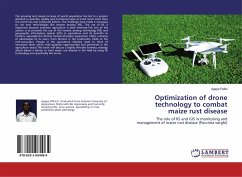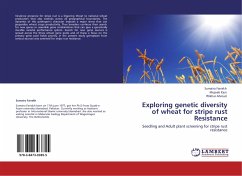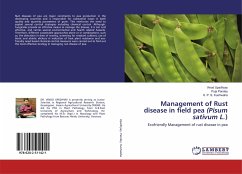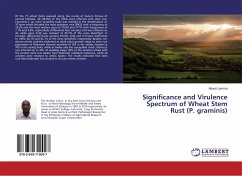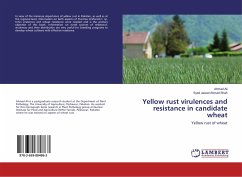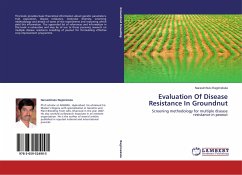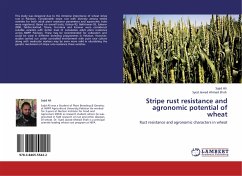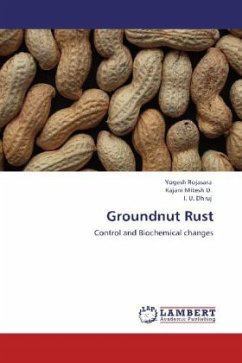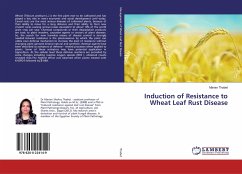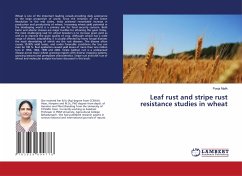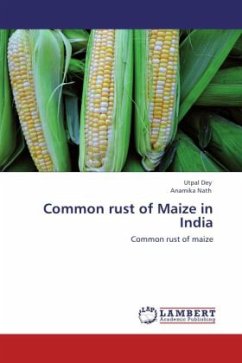
Common rust of Maize in India
Common rust of maize
Versandkostenfrei!
Versandfertig in 6-10 Tagen
39,99 €
inkl. MwSt.

PAYBACK Punkte
20 °P sammeln!
Common rust of maize caused by Puccinia sorghi Schw. is an important disease which results in heavy yield loss. Spore germination was maximum within 24 hr at temperature in the range of 20-30°C. Differential spray schedule with Hexaconazole 0.1% revealed that, rust index was least in T5, i.e., five sprays of Hexaconazole (30.25%) and the disease was completely free with T6, i.e., six sprays of Hexaconazole. The disease development started on 30 days (22.34% PDI) and increased progressively up to 90 days (88.56% PDI) and later on became stable. Among the inbred lines MI-12 and Indimyt-345 are ...
Common rust of maize caused by Puccinia sorghi Schw. is an important disease which results in heavy yield loss. Spore germination was maximum within 24 hr at temperature in the range of 20-30°C. Differential spray schedule with Hexaconazole 0.1% revealed that, rust index was least in T5, i.e., five sprays of Hexaconazole (30.25%) and the disease was completely free with T6, i.e., six sprays of Hexaconazole. The disease development started on 30 days (22.34% PDI) and increased progressively up to 90 days (88.56% PDI) and later on became stable. Among the inbred lines MI-12 and Indimyt-345 are highly resistant to common rust of maize and among hybrids viz., NK-6240, NK-61, NK-7305, CP-808, GK-3090, 30R77, CP-818, C-1945, JKMH-502, PAC-740, NK-121, Pro-311, DK-984 and Swarna registered resistant reaction under artificial inoculated field condition. A systemic fungicide, Tebuconazole 250 EC and nonsystemic fungicide, Mancozeb + Phyton and botanical product, Neemazol F 5% were most effective which resulted in less per cent germination of uredospore. The ITK s viz; Jeevamrutha @ 20 per cent concentration caused significantly less per cent germination (22.69%).



